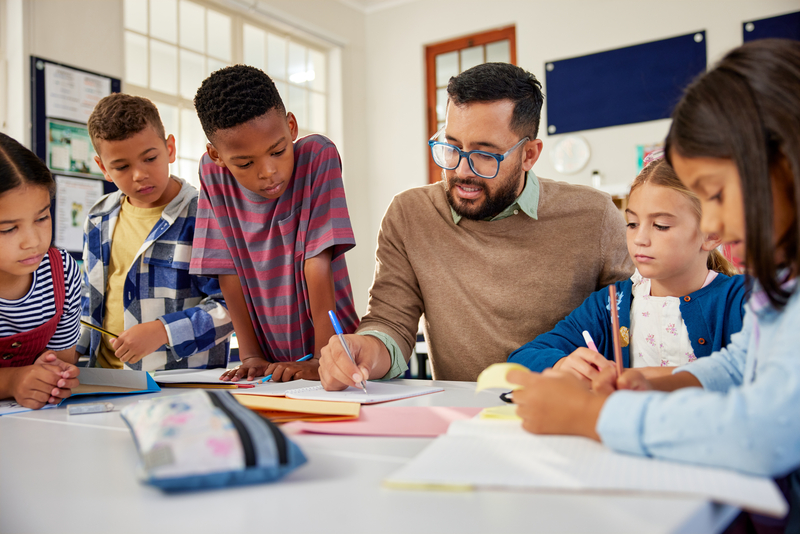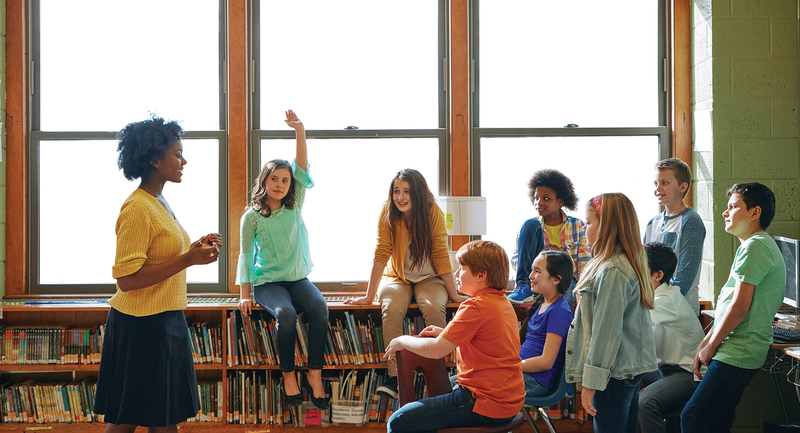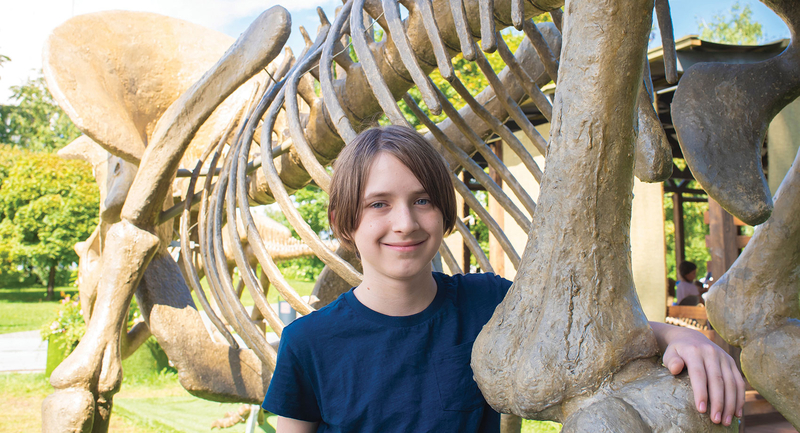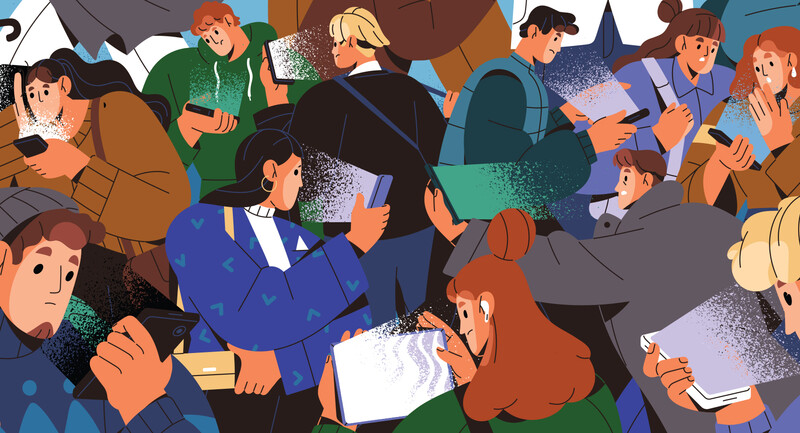We live in a culture that obsessively chases instant gratification. We do not like to wait for our morning caffeine fix at our favorite café or for a colleague's response to a late-night email. We have conditioned ourselves to believe that when we want something, we should have had it yesterday. We superimpose this mentality not only on the goods we consume but also on our interpersonal relationships and how we conceptualize personal success.
With information at our fingertips, our commodity-consumption mentality is changing how we share and think about knowledge and achievement. Our students have the ability to obtain instant "knowledge" with a quick Google search or a voiced Siri command. We may hear students, parents, or even colleagues question the value of retaining knowledge when we have instant access to a world of facts online. What value is there in knowing something when we can search and find the information with less effort than it takes to learn something new? But what if this "instant access" mentality also affects student expectations about their ability to retrieve knowledge or master a new skill?
We sometimes forget that learning something new is hard work and takes effort. It is such a labor-intensive process that the human brain is physiologically designed to avoid the difficulty associated with learning a new task. To lessen the intensity of synaptic trailblazing, neurons create shortcuts to link new information with existing knowledge (Willingham, 2010). We also know that when learning is appropriately difficult, the brain must work intentionally to overcome barriers. In a culture that promotes success and overlooks the inevitability of pitfalls, students (and adults) can inadvertently develop a fear of failure that promotes debilitating patterns of self-defeatist thinking.
The education world has been distilling Carol Dweck's work regarding growth mindset for more than a decade, which has propelled our professional thinking about the power of self-efficacy. We want students to embrace failure as a critical aspect of the learning process, and Dweck frames this new approach as a shift in mantra from "I'm not good at this" to "I'm not good at this yet" (2006). An intentional shift from a fixed to a growth mindset allows the learner to view struggle as a necessary move toward eventual mastery. More recent work on success and achievement by scholars such as Jo Boaler and Angela Duckworth build upon this notion that we can develop intelligence by fleshing out the concepts grounded in Dweck's investigation of learning, failure, and success.
Boaler helps us understand how appropriate teacher feedback contributes to deep mathematical comprehension and conceptualize the effect of coaching students through mathematics phobias by changing student perceptions about mistakes. Duckworth frames her research on the development of grit—a term she uses to describe the convergence of passion and perseverance—around responding to the causes that lead an individual to quit a given task. Hope, Duckworth proposes, is the foundational tenant for perseverance in the face of adversity and self-doubt (2016).
Strategies for Supporting Productive Struggle
Our profession's growing understanding of the pervasiveness of adverse childhood experiences (ACEs) can lead adults to overprotect students from everyday stressors. But experts such as former Stanford University dean Julie Lythcott-Haims (2015) have written that not experiencing healthy levels of stress can be as immobilizing as too many toxic stressors. So, how can we find a balance between overprotection and the construction of environments that feed into unhealthy levels of struggle?
Educators can embrace productive struggle by helping students develop a more curious and reflective metacognitive skillset. In my experience, achievement increases when effortful tasks connect new skills and previously existing knowledge. We can use mistakes and failures as a feedback loop to modify our thinking and improve over time. When we scaffold knowledge or skills, we stretch our intellectual capacity beyond our own beliefs about our existing capabilities.
We can cement important thinking skills by using assessments that encourage reflection and repetition. Using spaced retrieval—what some Harvard researchers call interleaving—reinforces student recall and application of acquired knowledge (Brown, Roediger, & McDaniel, 2014). To implement spaced retrieval, introduce students to a new concept through either direct instruction or independent/group discovery and have them use the new information in a novel way. Depending on the subject, this might take the form of a lab experiment, a debate, or a problem-based scenario.
Teachers would then prompt students to reflect on how the learning went by asking questions such as, what did you learn? What would you do differently next time? To refine learning, give students additional practice with similar scenarios—especially if the skill is complex (such as in scientific theory, engineering, or writing). Practiced interleaving puts some space and reflective time between initial skill use and the gradual retrieval that leads to mastery.
I've found the following individual strategies helpful during this process.
Summarize key ideas. Require students to summarize key concepts in their own words, engaging them with individual reflection tasks. I have had students employ this approach in the form of a jigsaw activity. Students were divided into small working groups to explore the foundational concepts of a given learning theory. Each group had to present the key concepts, scholars, and tenants of the theory and pose three questions for a whole class discussion. This allowed students to hone specific expertise about one theory while gaining a working knowledge of others.
Give frequent, low-stakes quizzes. Quick knowledge checks support intentional practice by providing learners with feedback on learning expectations based on their current performance. For the longest time, I focused on quizzes as a tool solely for reading accountability. This easily translated to a "gotcha" type of experience for students because of the high stakes associated with the quiz grade. An alternative approach is to allow the student to take a quiz twice and use the average score of the two attempts. A simple procedural shift like this offers a more redemptive approach to learning. Students have the opportunity to reevaluate weak knowledge areas while maintaining personal responsibility.
Grapple with new content. Have students wrestle with solutions or problem solving prior to direct instruction, which allows students to creatively apply previous knowledge in a new situation. For example, start a novel unit on Gary Paulsen's Hatchet (where the main character gets lost in the woods) with a hypothetical situation: If you were stranded alone in the forest, what would you need to survive? Let the students devise a plan and compare their thinking to the mental and physical acumen of the book's main character.
Use "transfer of skills/empathy" activities. Instruct students to take information from one context and consider how that learning might transfer to a situation outside of the classroom. For example, we might ask students to consider how the details of a popularized current event might be perceived through the lens of an underrepresented or marginalized group of people.
Because students are accustomed to the immediacy of information, they have been conditioned to presume that not having the right answer on the first try means they must raise the academic white flag of defeat. If they do not attain mastery after an initial attempt, they write off a task as beyond their reach.
In 1857, abolitionist educator Fredrick Douglass stated, "If there is no struggle, there is no progress." These words are still broadly applicable, whether we are talking about liberty, equity, or learning. A significant part of the human experience involves struggle. Giving students the knowledge to handle that struggle by teaching them how to respond to challenging situations and how to use strategies to overcome the mental hurdles of everyday life is a critical part of their journey toward becoming an educated citizen.







